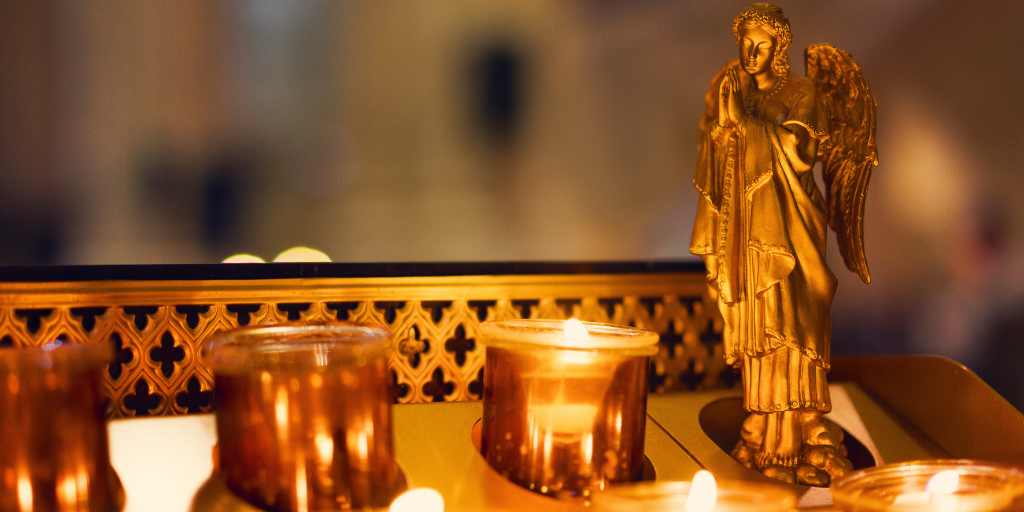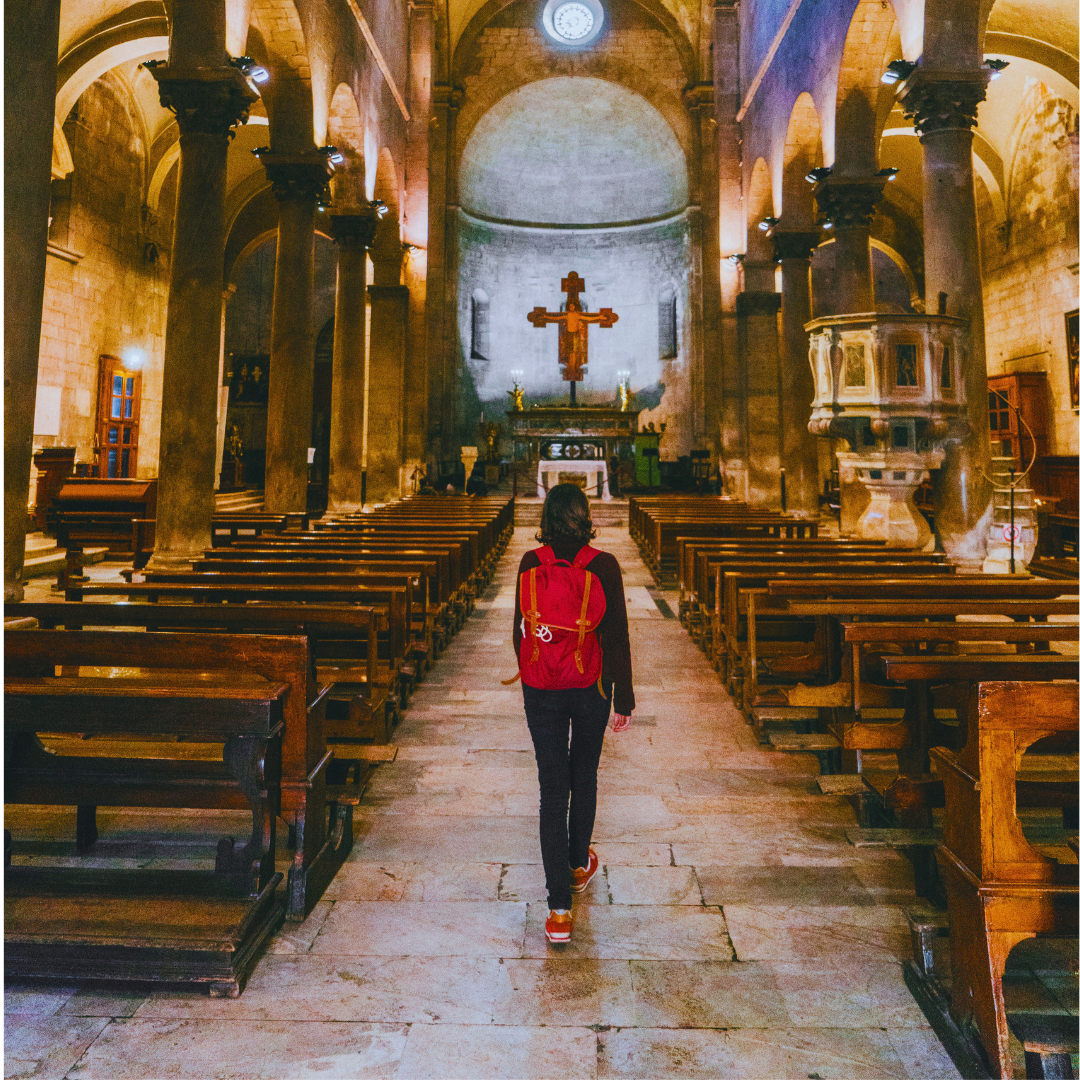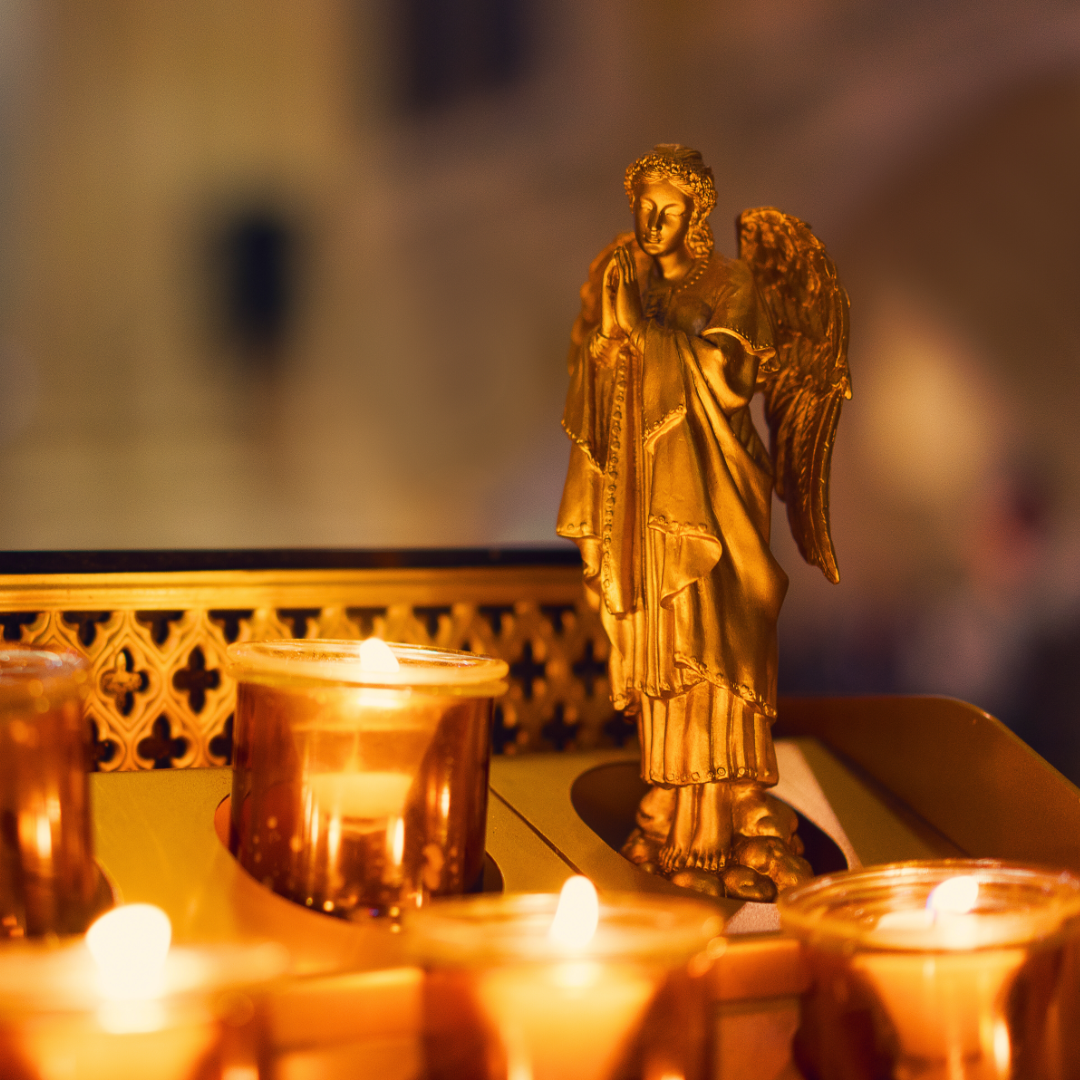
Flávia Ghelardi continues her series on indulgences, discussing the various types of indulgences and how we can gain them for ourselves or the souls in Purgatory.
Flávia Ghelardi writes from Brazil in English and Portuguese. Vá para a versão em português.
Partial and Plenary Indulgences
The partial indulgence erases part of the penalties due to our sins. The amount of the penalty erased by the partial indulgence depends on the greater or lesser degree of love with which we do the work enriched by the indulgence.
The plenary indulgence erases all the penalties due for our sins. This means that if we die immediately after receiving this indulgence, we go straight to Heaven, because we will have no penalties to pay in purgatory.
Despite fulfilling all the conditions, in practice it is very difficult to be sure whether we have actually received the plenary indulgence, because it is necessary to be absolutely detached from all deliberate sin, which requires a sincere sorrow for all sins committed, both venial and mortal, and the resolution to avoid even the smallest sin from then on. In any case, at least the partial indulgence is guaranteed, in case we do not receive the plenary one.
The conditions for receiving a plenary indulgence are: sacramental Confession, Eucharistic Communion, and prayers for the Pope's intentions. These conditions can be fulfilled on days other than the one on which the prescribed work was done, but communion and prayer for the Pope must be done on the same day. There is no express rule about the distance between the day of confession and the day of the indulgenced work, but the custom is that it should be between 8 and 15 days at the most (before or after). Of course, without having committed mortal sin in that period. With a single confession, one can obtain several indulgences.
The Church grants many plenary indulgences, so we need to make the most of them.

Who can receive indulgences?
We can gain indulgences for ourselves or for the souls in purgatory. Since it is a liberality of the Church that requires that the person wants to receive and is in condition to receive, it is not possible to gain an indulgence for another person who is alive.
The indulgences we receive for ourselves, we can be sure of their application to our soul, because it is within the authority of the Church. For the souls in purgatory, we must trust in God's mercy. Indulgences are never lost. If it doesn't go specifically to the person for whom we ask, another soul receives it. Because of this uncertainty, we can offer the plenary indulgence more than once for the same deceased.
The plenary indulgence can be received only once a day (except in danger of death). Partial indulgences can be received several times a day.
Examples of indulgences
The handbook of indulgences (Enchiridum Indulgentiaram) lists several works that are indulgensible, so it is worth checking them all out. Here we list just a few:
- Partial indulgence is granted to the faithful who abstain from lawful and pleasing things, in a spontaneous spirit of penance
- A partial indulgence is granted to the faithful who visit the Blessed Sacrament to adore it; if they do this for at least half an hour, the indulgence will be plenary.
- Spiritual communion, made in any pious formula, is enriched with a partial indulgence.
- A partial indulgence is granted to the faithful who dedicate themselves to teaching or learning Christian doctrine.
- Prayer of the Rosary: For the plenary indulgence the following is determined: 1. recitation of one third of the Rosary is sufficient, but the five decades must be recited together. 2. pious meditation must accompany the vocal prayer. 3) In public recitation, the mysteries should be announced according to the approved custom of the place; in private recitation, it is sufficient for the faithful to add the meditation of the mysteries to the vocal prayer.
We have many opportunities during the day to receive indulgences, so a tip is, during morning prayers, already ask God for all the indulgences that can be gained that day, adding the Our Father and Hail Mary prayers for the intentions of the Pope.
O Tesouro das Indulgências, Parte 2
Indulgência parcial e indulgência plenária
A indulgência parcial apaga parte das penas devidas por nossos pecados. A quantidade da pena apagada pela indulgência parcial depende do maior ou menor grau de amor com que fazemos a obra enriquecida pela indulgência.
A indulgência plenária apaga todas as penas devidas por nossos pecados. Isso significa que se morrermos logo após receber essa indulgência, vamos diretamente para o Céu, pois não teremos penas a pagar no purgatório.
Apesar de cumprir todas as condições, na prática é muito difícil ter certeza se realmente recebemos a indulgência plenária, porque é necessário estar absolutamente desprendido de todo pecado deliberado, o que exige uma dor sincera por todos os pecados cometidos, tanto veniais como mortais e o propósito de evitar daí para a frente até o menor pecado. De qualquer forma, pelo menos a indulgência parcial está garantida, no caso de não recebermos a plenária.
As condições para se receber uma indulgência plenária são: confissão sacramental, comunhão eucarística e orações nas intenções do Papa. Essas condições podem ser cumpridas em dias diversos daquele em que se fez a obra prescrita, mas a comunhão e oração pelo Papa devem ser feitas no mesmo dia. Não há uma regra expressa sobre a distância entre o dia da confissão e o da obra indulgenciada, mas o costume é que seja entre 8 e 15 dias no máximo (antes ou depois). Claro, sem ter cometido pecado mortal nesse período. Com uma só confissão, pode-se obter várias indulgências.
A Igreja concede muitas indulgências plenárias, então precisamos aproveitar ao máximo.
Quem pode receber as indulgências?
Podemos lucrar as indulgências para nós mesmos ou para as almas do purgatório. Como é uma liberalidade da Igreja que necessita que a pessoa queira receber e esteja em condição de receber, não é possível lucrar indulgência para outra pessoa que esteja viva.
As indulgências que recebemos para nós, podemos ter certeza de sua aplicação para a nossa alma, pois está dentro da autoridade da Igreja. Para as almas do purgatório, devemos confiar na misericórdia de Deus. As indulgências nunca são perdidas. Se não vai especificamente para a pessoa para a qual pedimos, outra alma recebe. Em virtude dessa incerteza, podemos oferecer mais de uma vez a indulgência plenária para o mesmo defunto.
A indulgência plenária pode ser recebida somente uma vez por dia (exceto em perigo de morte). As indulgências parciais podem ser recebidas várias vezes ao dia.
Exemplos de indulgências
O manual das indulgências (Enchiridum Indulgentiaram) elenca várias obras indulgenciáveis, então vale a pena verificar todas elas. Aqui elencamos apenas algumas:
- Concede-se indulgência parcial ao fiel que se abstém de coisa lícita e agradável, em espírito espontâneo de penitência
- Concede-se indulgência parcial ao fiel que visitar o Santíssimo Sacramento para adorá-lo; se o fizer por meia hora ao menos, a indulgência será plenária.
- A comunhão espiritual, feita em qualquer fórmula piedosa, é enriquecida com indulgência parcial.
- Concede-se indulgência parcial ao fiel que se dedica a ensinar ou aprender a doutrina cristã.
- Oração o Terço: para a indulgência plenária determina-se o seguinte: 1. Basta a reza da terça parte do Rosário, mas as cinco dezenas devem-se recitar juntas. 2. Piedosa meditação deve acompanhar a oração vocal. 3. Na recitação pública, devem-se anunciar os mistérios, conforme o costume aprovado do lugar; na recitação privada, basta que o fiel ajunte a meditação dos mistérios à oração vocal.
São muitas oportunidades que temos durante o dia de recebermos indulgências, então uma dica é, na oração da manhã, já pedir a Deus todas as indulgências que se pode lucrar naquele dia, acrescentando a oração do pai nosso e ave maria nas intenções do Papa.
Copyright 2023 Flávia Ghelardi
Images: Canva
About the Author

Flávia Ghelardi
Flávia Ghelardi is the mom of four, a former lawyer already "promoted" to full time mom. Flávia published her first book FORTALECENDO SUA FAMÍLIA and is a member of Schoenstatt´s Apostolic Movement. Flávia loves to speak about motherhood and the important role of women, as desired by God, for our society. She blogs at www.fortalecendosuafamilia.blogspot.com.





.png?width=1806&height=731&name=CatholicMom_hcfm_logo1_pos_871c_2728c%20(002).png)
Comments